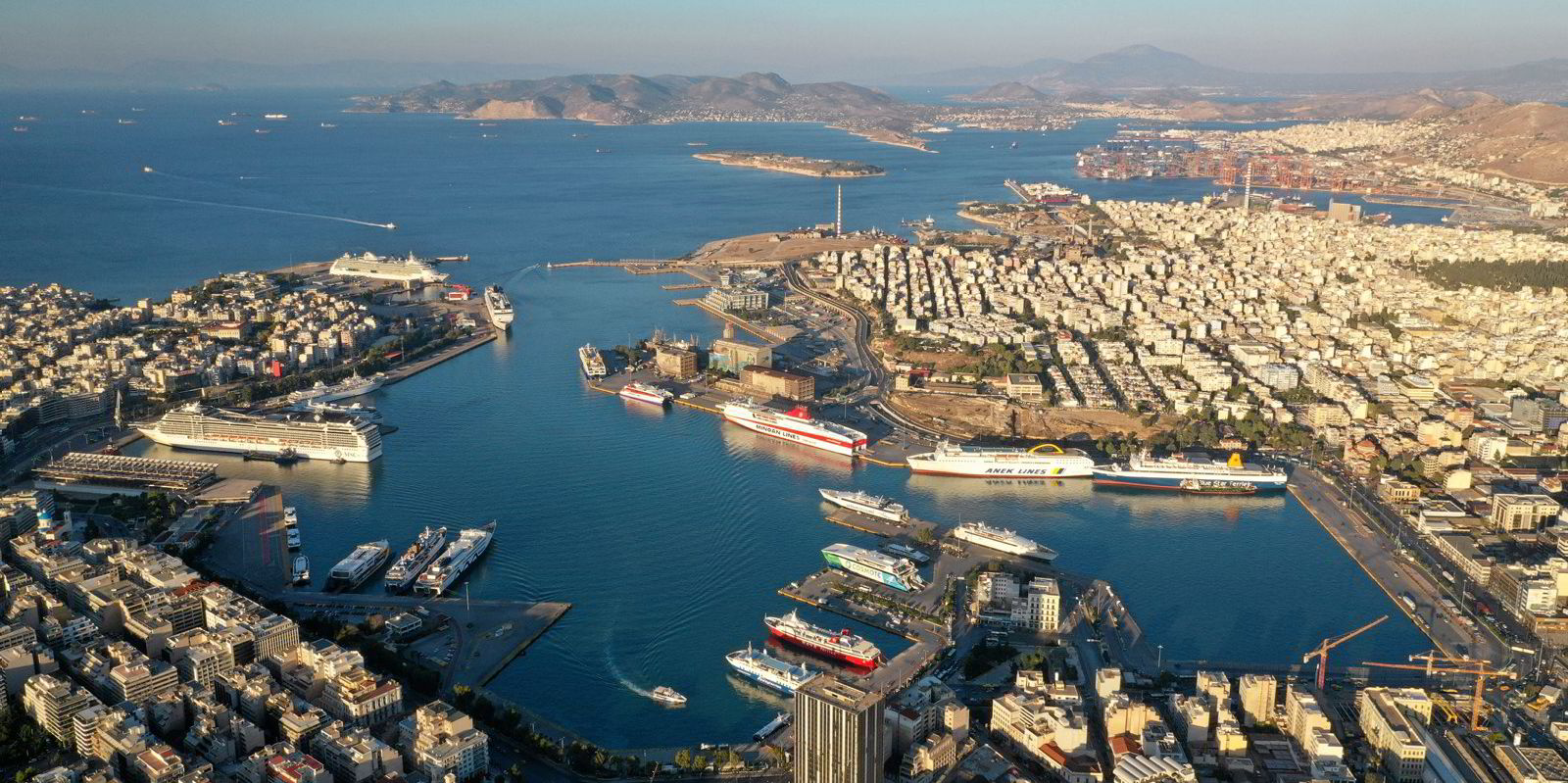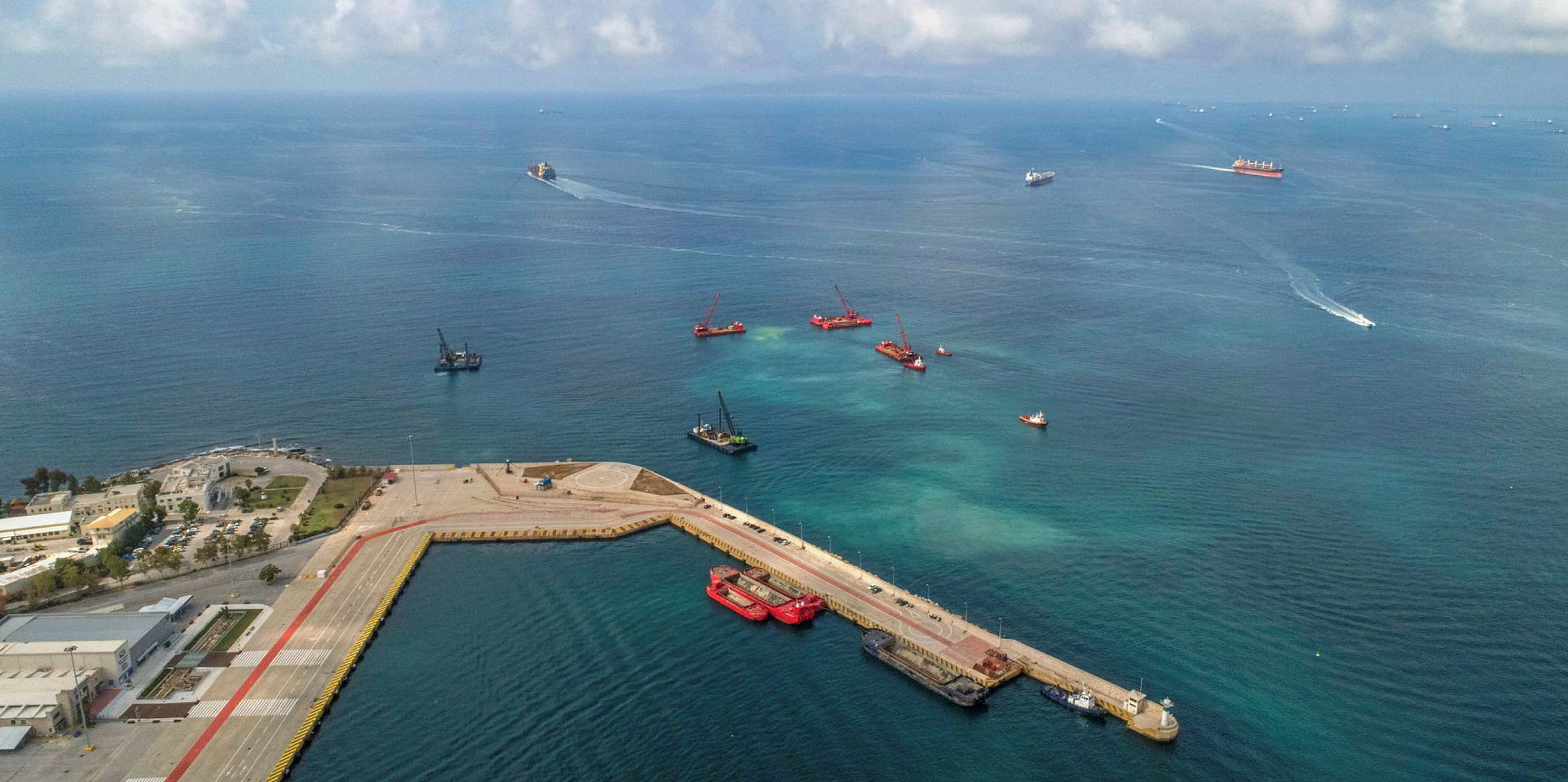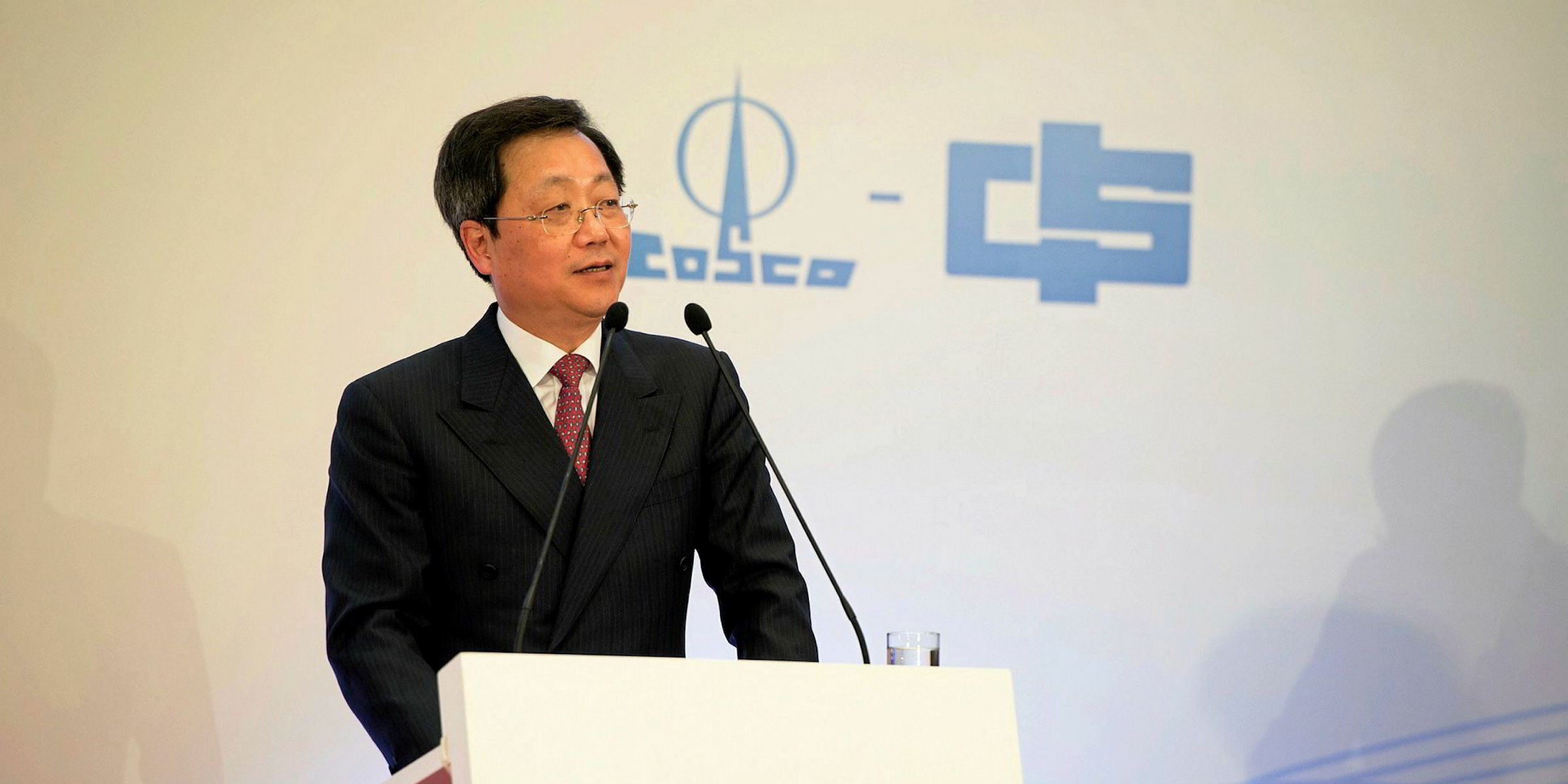China Cosco Shipping will tighten its grip over the port of Piraeus, despite failing to deliver on all the investments it promised when it bought Europe’s fourth-biggest containership terminal from the Greek state.
Lawmakers in Athens agreed on Thursday to revise Greece’s contract with Cosco, giving the Chinese company another five years to complete about €300m ($348m) in mandatory investments that were due by the end of the year.
Completion of these projects, which include upgrades to the port's passenger terminal and ship repair facilities, had been a condition for Cosco to increase its existing 51% stake in the formerly state-controlled Piraeus Port Authority (OLP) to 67%.
Even though just a third of these investments has been completed so far, the legislation passed on 30 September allows the 16% stake transfer to go ahead immediately.
Cash-strapped Greece, which still suffers from the fallout of a debt crisis just a few years ago, is keen to get its hands on the €88m generated from the sale of the extra OLP stake.
The conservative government in Athens is also keen to promote itself as a business-friendly investment hub and wishes to avoid an ugly spat with Cosco — a company it has long advertised to international financiers as a showcase privatization.
“Both parties thought it appropriate to settle the issue amicably and avoid getting tangled in time-consuming arbitration,” finance minister Christos Staikouras told parliament.
By giving Cosco another five years to complete the investments set out in its initial share transfer deal in 2016, Greece implicitly conceded that it carries part of the blame for the delays.
It took local authorities a full three years to approve a long-term, €611m investment master plan to overhaul Piraeus’ passenger, cruiseship, car terminal and ship repair facilities. When they finally gave they go-ahead, they struck down an additional fourth boxship pier, which Cosco wanted but local labour unions opposed.
Separately, Greek judges last year suspended dredging works off Piraeus harbor, heeding local activists who saw them as an environmental threat.
Cosco has now managed to get some legal coverage for such obstacles.
New clauses in the revised agreement explicitly absolve Cosco of any responsibility for delays caused by court-mandated work suspensions or archaeological finds.
Manna from heaven
Greece has shown flexibility because Cosco-run OLP is a rare source of growth for the country's battered economy.
Despite some critics, mainly from outside Greece, who resent Chinese ownership of critical European infrastructure, the port of Piraeus has flourished under Cosco.
In 2007, Piraeus barely made the top 20 among Europe’s biggest boxship ports, in terms of container throughput. Last year, it was the continent's fourth-biggest after Rotterdam, Antwerp and Hamburg, according to PortEconomics figures cited in the latest OLP representation.
Revenue from the container terminals, the company's biggest single source of income, jumped by 64% between 2016 and 2020 to €66.5m.
Piraeus is not the only port Greece has privatised in order to boost its economy.
Thessaloniki Port Authority, the country’s second biggest terminal, is controlled by Ivan Savvidis, a Russian owner of Greek descent who has CMA CGM-controlled Terminal Link as a minority partner.





